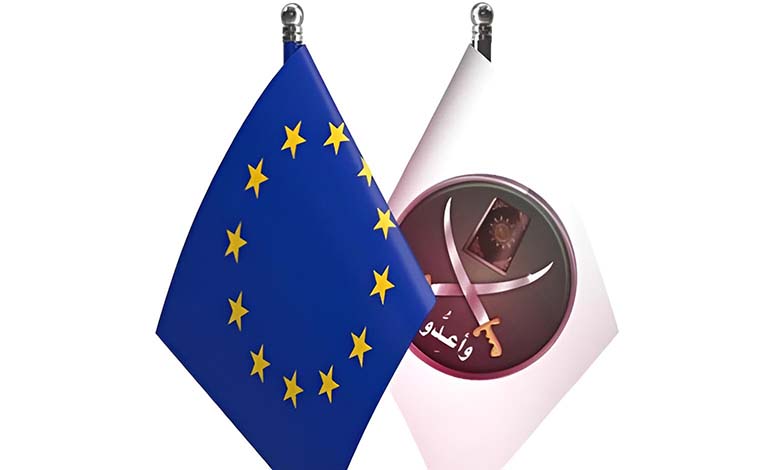Pressure in Ireland and Austria: What is still missing in Europe’s fight against the Muslim Brotherhood?

From Austria to Ireland, passing through France, initiatives and calls to counter the Muslim Brotherhood are growing across Europe, as more countries become aware of the group’s threat.
In recent weeks, mounting pressure has been placed on the Austrian government to ban political Islam — including the Muslim Brotherhood — following several alarming developments.
-
The Muslim Brotherhood in Europe and Youth: A Long Arm with 31 Branches and a Recruitment Strategy
-
The Muslim Brotherhood in Europe and Youth: An Extensive Arm with 31 Branches and a Structured Recruitment Strategy
A few days after the discovery of a Brotherhood-affiliated spy within Austria’s domestic intelligence service, Ricarda Berger, spokeswoman for the Freedom Party of Austria (the country’s strongest political force) and member of Parliament, stated: “A ban on political Islam and on wearing the veil in schools is what is needed right now.”
Yesterday, the Austrian government launched the first phase of its plan to curb the influence of political Islam, introducing measures to prohibit the wearing of headscarves by children.
Since November 2020, prosecutors in Graz have been investigating the Muslim Brotherhood for alleged terrorist financing, extremism promotion, and incitement to hatred.
Austria has also banned the symbols of Islamist organizations — including the Muslim Brotherhood and Hezbollah — since 2019.
-
New book reveals the reality of “Jihadist” Groups and the Muslim Brotherhood in Europe
-
International Expert Reveals Strategies to Confront the Muslim Brotherhood in European Countries
Pressure in Ireland
In Ireland, a prominent senator has urged the government to open an inquiry into the Brotherhood’s presence in the country.
Independent Senator Sharon Keogan said that the “influence of the Muslim Brotherhood has spread, yet the Irish government has not addressed it.”
Her remarks came months after the closure of the Islamic Cultural Centre in Clonskeagh — Dublin’s largest mosque — last April, amid suspicions linking some of its administrators to radical Salafist circles and allegations of internal financial irregularities.
In France, authorities decided last June to dissolve the European Institute of Human Sciences (IESH), considered the country’s oldest imam training center, citing its “affiliation with the Muslim Brotherhood.”
The move followed a security report on the Brotherhood’s activities in France and the threat it poses to national security and social cohesion.
-
France – Successive blows to the Brotherhood in Europe to control its extremist activities
-
Under the banner of freedoms: how the Muslim Brotherhood infiltrates Europe through subtle means
Action Plan
In Germany, the opposition — especially the Alternative for Germany (AfD) party — is pressing the government to establish a strategy to combat the Brotherhood. Government sources say Berlin is currently preparing an action plan.
Despite these efforts, experts and researchers on extremist movements believe that European countries still have a long way to go in countering the Brotherhood’s deeply entrenched influence.
According to a recent paper by Austrian researcher Nina Schultz, effectively countering the Brotherhood in Europe requires:
-
Europe and the Muslim Brotherhood Battle: The Defensive Belt Expands
-
After the Arrest of a Hamas Cell in Berlin: The Brotherhood’s Danger Infiltrates Europe
- Ending all public funding for organizations linked to the Brotherhood or other Islamist entities at local, national, and EU levels.
- Halting cooperation between public institutions and Islamist bodies, as well as political visits to mosques monitored by security agencies for extremism ties.
- Ensuring full transparency of associations, particularly regarding their funding structures and sources.
- Establishing academic programs, research institutes, and documentation centers dedicated to studying Islamism and providing knowledge to policymakers, the media, and civil society.
- Preventing Islamist actors from joining political parties and protecting democratic institutions from Brotherhood influence.
-
Germany’s Muslim Brotherhood between delayed ban and soft confrontation: Is the European equation about to change?
-
Women Exploited by the Muslim Brotherhood to Circumvent European Immigration Laws
A European-level effort
German expert Sigrid Herrmann said: “If the Muslim Brotherhood were designated a terrorist organization at the EU level, all member states would be able to rely on that classification.”
However, she noted that such a move faces obstacles, including “the lack of consensus on how to legally handle organizations that operate within the EU as ostensibly legitimate entities.”
Herrmann added: “In some countries — such as Ireland and France — banning Brotherhood-linked institutions is easier than in Germany.”
-
European awakening on the Muslim Brotherhood issue: seven countries on the path to counteraction
-
France Leads European Initiative to Ban the Muslim Brotherhood… What’s New?
She continued: “The United Kingdom and Germany remain alternative hubs where the Brotherhood has managed to establish its structures without significant obstacles and can continue to do so for the foreseeable future.”
She concluded: “In Germany, politicians treat Syrian and Bosnian Brotherhood members differently from those of Egyptian descent. The former are considered institutional partners, while the latter engage only in discreet local-level cooperation. Therefore, this initiative must come from the EU level. Above all, Europe needs the political will to resist the Brotherhood — but I do not see that will yet.”
-
“Terrorism and Extremism in Europe from the Inside”: A Book Warns of the Dangers of the Muslim Brotherhood
-
The Brotherhood worked to establish its schools in Europe to expand its ideas












